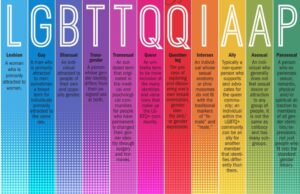Understanding and Supporting the LGBTQ+ Community

Understanding and Supporting the LGBTQ+ Community
The LGBTQ+ community is a diverse and vibrant group that encompasses individuals of different sexual orientations, gender identities, and expressions. The acronym LGBTQ+ stands for Lesbian, Gay, Bisexual, Transgender, Queer or Questioning, with the plus symbol representing other sexual and gender minorities, such as intersex, asexual, and pansexual individuals. Understanding the experiences, challenges, and contributions of the LGBTQ+ community is crucial for promoting inclusion, equity, and social justice.
Historical Context
The fight for LGBTQ+ rights has a long and complex history. Notable milestones include the Stonewall Riots of 1969, which marked a pivotal moment in the gay rights movement. These riots, sparked by a police raid on the Stonewall Inn in New York City, led to increased visibility and activism for LGBTQ+ rights. The subsequent decades saw significant progress, including the declassification of homosexuality as a mental disorder by the American Psychiatric Association in 1973, the establishment of Pride marches, and the eventual legalization of same-sex marriage in many countries.
Current Challenges
Despite significant advancements, the LGBTQ+ community continues to face numerous challenges:
- Discrimination and Violence: Many LGBTQ+ individuals experience discrimination in various aspects of life, including employment, housing, healthcare, and education. Hate crimes and violence against LGBTQ+ people, especially transgender individuals, remain a critical issue.
- Mental Health: The stress of discrimination and social stigma can contribute to higher rates of mental health issues, such as depression, anxiety, and suicidal ideation among LGBTQ+ individuals. Access to supportive mental health services is essential.
- Legal Inequities: In many parts of the world, LGBTQ+ individuals still lack basic legal protections. This includes the right to marry, adopt children, and live free from discrimination. In some countries, same-sex relationships are criminalized, and individuals can face severe penalties, including imprisonment and death.
- Healthcare Access: LGBTQ+ individuals often face barriers to healthcare, including discrimination from healthcare providers and lack of access to services that cater to their specific needs, such as gender-affirming care for transgender individuals.
Advocacy and Support
Supporting the LGBTQ+ community requires a multifaceted approach:
- Education and Awareness: Promoting understanding and acceptance through education is crucial. This includes incorporating LGBTQ+ history and issues into school curricula and providing training for healthcare providers, educators, and law enforcement.
- Legal Protections: Advocating for comprehensive anti-discrimination laws and policies that protect LGBTQ+ individuals in all areas of life is essential. This includes marriage equality, adoption rights, and protections against workplace and housing discrimination.
- Mental Health Support: Providing accessible and affirming mental health services is vital. This includes creating safe spaces where LGBTQ+ individuals can receive support and counseling without fear of discrimination.
- Visibility and Representation: Increasing the visibility of LGBTQ+ individuals in media, politics, and other public spheres helps to challenge stereotypes and promote acceptance. Representation matters, and seeing diverse LGBTQ+ role models can have a powerful impact.
- Community Building: Creating supportive communities where LGBTQ+ individuals can connect, share experiences, and find support is important. This includes LGBTQ+ centers, support groups, and social organizations.
Celebrating Diversity
The LGBTQ+ community contributes significantly to the cultural, social, and economic fabric of society. Celebrating LGBTQ+ identities and experiences enriches our collective understanding of human diversity and promotes a more inclusive world. Pride events, such as parades, festivals, and cultural activities, play a key role in celebrating LGBTQ+ culture and raising awareness about ongoing struggles for equality.
Conclusion
Understanding and supporting the LGBTQ+ community is a vital aspect of promoting social justice and human rights. While significant progress has been made, continued efforts are needed to address the ongoing challenges faced by LGBTQ+ individuals. By advocating for legal protections, promoting education and awareness, and providing mental health support, we can create a more inclusive and equitable society where everyone is free to live authentically and without fear.
Our social media presence:-
https://www.youtube.com/padindia
https://www.linkedin.com/company/padindia
https://www.facebook.com/Padvoice/